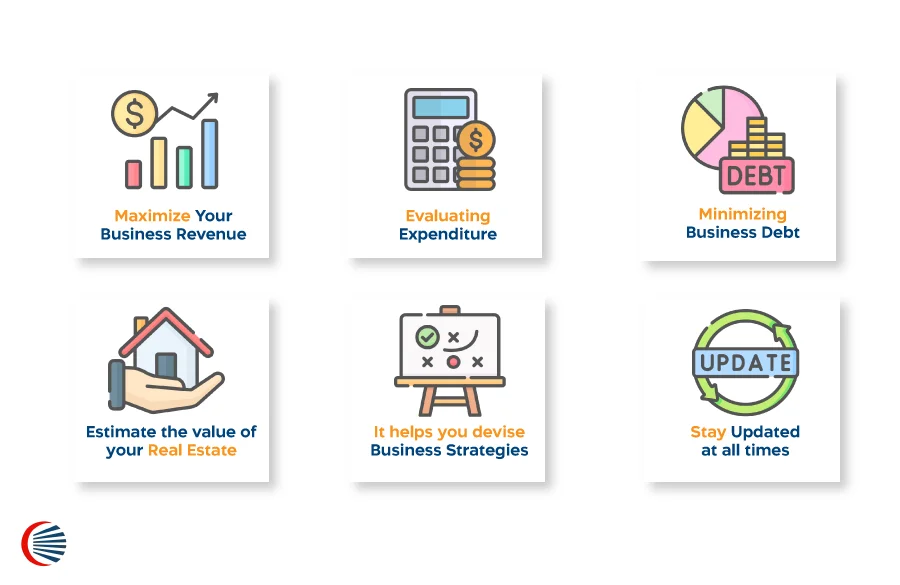Why You Need Skilled Real Estate Accountants for Your Property Investments
Necessary Techniques for Efficient Building Bookkeeping in Construction & Property Projects
In the vibrant landscape of construction and real estate, efficient accountancy techniques are extremely important to task success. Recognizing the fundamental principles of construction accounting, coupled with the execution of task setting you back methods, can dramatically improve financial accuracy.
Comprehending Construction Bookkeeping Essentials
Building and construction audit is a customized area that calls for a comprehensive understanding of financial management concepts customized to the distinct obstacles of the building and construction industry. Unlike conventional accountancy, which concentrates on a constant set of economic tasks, construction accounting should represent the dynamic nature of projects, changing expenses, and differing timelines.
Trick components of building and construction bookkeeping include work setting you back, contract administration, and economic reporting. Work setting you back allows companies to track expenses related to particular projects, making certain that budgets are abided by and productivity is taken full advantage of. Accurate contract monitoring is essential as it entails the complex handling of change orders, development billing, and retention, every one of which can significantly affect money circulation and job outcomes.
Additionally, financial reporting in building audit demands making use of certain metrics, such as Job in Progression (WIP) records and percentage-of-completion accountancy. These tools provide stakeholders with understandings into task efficiency and economic health. By grasping these foundational elements, building specialists can boost monetary oversight, improve decision-making, and inevitably drive project success, ensuring that both long-term goals and temporary purposes are fulfilled successfully.
Implementing Job Costing Approaches
Efficient work setting you back methods are crucial for construction firms to keep financial control and boost profitability. By accurately tracking expenses related to each project, firms can recognize locations of overspending, boost budget plan management, and optimize resource appropriation. Executing an organized method to work costing entails several essential methods.
First, develop a clear framework for classifying costs. Straight costs, such as products and labor, should be separated from indirect costs, like expenses and administrative expenses. This difference permits even more precise tracking and evaluation.

Third, regularly review and upgrade expense data to mirror real-time task problems. This enables prompt modifications and informed decision-making, ensuring that jobs continue to be on the right track financially.
Making Use Of Construction Administration Software Application
In today's competitive landscape, leveraging building and construction administration software application has become a crucial tool for improving job performance and precision. These software program solutions enhance numerous elements of construction bookkeeping, from budgeting to invoicing, enabling task managers to preserve specific monetary oversight. By integrating real-time data monitoring, teams can keep an eye on expenses and readjust budgets proactively, making certain that tasks stay monetarily feasible.

In addition, construction administration software assists in improved communication amongst stakeholders. With centralized platforms, all group participants, from project managers to subcontractors, can access current financial information, lessening disparities and enhancing partnership. This openness not just aids in decision-making however additionally fosters depend on among all celebrations included.
Furthermore, the automation of routine audit tasks lowers the possibility of human errors, which can bring about costly economic mismanagement. With features such as automated invoicing and cost monitoring, construction management software allows teams to concentrate on tactical planning and implementation as opposed to management tasks.
Inevitably, embracing construction management software program stands for an he said investment in operational efficiency, placing firms to react agilely to the dynamic needs of building and construction and property tasks. Welcoming these devices can considerably elevate the standards of construction accounting techniques.
Ensuring Conformity With Rules
Preserving compliance with policies is an essential aspect of successful building bookkeeping that can not be overlooked. Building and construction tasks undergo a myriad of regional, state, and government laws, affecting everything from security requirements to economic coverage demands (Real Estate Accountants). Consequently, it is important for construction accounting professionals to remain educated regarding these regulations to stay clear of financial obstacles and legal penalties.
One key technique is to execute durable tracking systems that keep track of compliance in real-time. This may include normal audits of financial records, contracts, and allows to ensure positioning with regulative assumptions. Additionally, buying recurring training for accounting staff can cultivate a society of compliance, enabling the group to rapidly adjust to governing adjustments.
Establishing clear internal plans that lay out conformity procedures ensures that all group members understand their obligations. By prioritizing conformity in building and construction accountancy methods, companies not only alleviate risks yet likewise enhance their reputation and operational performance, eventually adding to the job's total success.

Tracking Financial Efficiency On A Regular Basis
On a regular basis keeping track of financial efficiency is important for the success of construction tasks, as it gives important insights into budgeting, capital, and overall task feasibility. Effective economic oversight allows task managers to recognize discrepancies in between forecasted and real expenses, enabling prompt restorative actions.
Applying an organized method to monetary tracking includes making use of key efficiency signs (KPIs) such as profit margins, expense variations, and made value analysis. These metrics facilitate a clear understanding of job health, making it possible for groups to make enlightened decisions.
Constant evaluations of financial information also help in projecting future expenses and income, assisting to avoid capital shortages that can jeopardize job timelines. Utilizing advanced bookkeeping software application can streamline the surveillance process, supplying real-time updates and improving information accuracy.
In addition, establishing a routine for economic efficiency reviews cultivates accountability among employee. Normal economic conferences make certain that all stakeholders continue to be straightened on task purposes and economic objectives. By focusing on regular financial monitoring, building firms can reduce dangers, enhance resource allotment, and eventually enhance project success.

Verdict
In conclusion, effective construction accountancy is essential for the effective management of construction and property projects. By executing robust task setting you back methods, leveraging sophisticated building management software application, making sure regulative compliance, and routinely keeping track of monetary performance, companies can enhance economic oversight and reduce risks. These important strategies not just advertise adherence to budget plans however also Your Domain Name facilitate enlightened decision-making, eventually causing enhanced project end results and lasting monetary sustainability in the building and construction market.
By grasping these foundational elements, construction more info here specialists can boost economic oversight, enhance decision-making, and inevitably drive task success, making certain that both temporary goals and long-term objectives are satisfied successfully.
These software application solutions improve different facets of construction accounting, from budgeting to invoicing, making it possible for job managers to keep accurate economic oversight. By focusing on constant monetary monitoring, construction companies can mitigate threats, enhance source allocation, and ultimately improve task success.
In final thought, reliable construction accounting is essential for the successful management of building and construction and genuine estate jobs. By implementing robust job costing techniques, leveraging advanced building and construction management software application, making certain regulatory compliance, and regularly checking economic efficiency, companies can enhance financial oversight and reduce dangers.